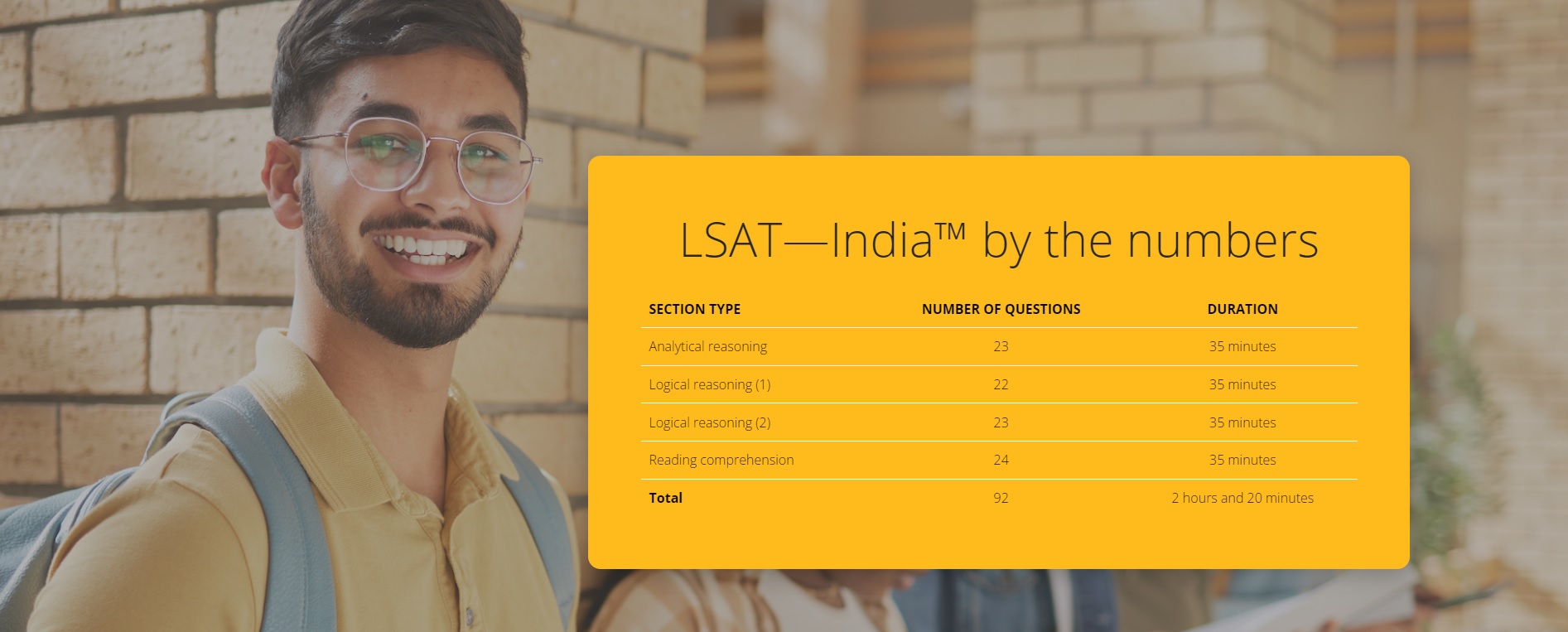The LSAT—IndiaTM is an admission test for Indian law colleges. It is modelled on the world-renowned LSAT, used by law schools in North America and Australia. The LSAT—IndiaTM assesses the critical thinking skills essential to success in law college.
Eligibility Criteria
Nationality
LSAT—IndiaTM is the test for admission into multiple law schools in India. You may be from any country, but you may take the test only from within India.
Qualification
- Candidates applying for 5-year Integrated programs are only required to be appearing for XII class exam or have already cleared it.
- Candidates who are applying for the 3-year LLB program or LLM programs are required to have completed their graduation or appearing in the final year.
Refer to the eligibility criteria of the law college that you are interested in getting admission into.
Age Limit
Pearson VUE does not have any age restriction for the candidates who are interested in taking the LSAT—IndiaTM. Anyone who has registered for the LSAT—IndiaTM may sit for the test. It is advisable to refer to the eligibility criteria, including any age limit set forth by the law college that you are interested in getting admission into
All candidates who complete the test registration application including uploading a photo and electronic copy of valid photo ID, pay the registration fee in a timely manner and follow the published test rules may sit for the LSAT—IndiaTM.
Documents Required For Registeration
- Valid email address
- Mobile number
- One of the valid photo IDs from the acceptable ID list.
Identification needed to take the online LSAT—India?
The following are acceptable forms of ID
- UIDAI / Aadhaar Card (Coloured or black/white E-Aadhaar Print is acceptable, but Aadhaar registration slip is NOT acceptable.)
- Passport
- Election Card / Voter ID
- PAN Card
- Driver’s License
- SC/ ST Certificate with photograph
- Military ID / Government-issued Armed Forces Dependent ID containing photograph of the test-taker
- Employee ID containing photograph and signatur
Exam Pattern
The LSAT—IndiaTM assesses critical thinking skills with three types of multiple-choice questions, as follows:
|
Section Type |
Number of questions |
Duration |
|
Analytical Reasoning |
23 |
35 minutes |
|
Logical Reasoning (1) |
22 |
35 minutes |
|
Logical Reasoning (2) |
23 |
35 minutes |
|
Reading Comprehension |
24 |
35 minutes |
|
|
~92 Total |
2 hours and 20 minutes Total |
LSAT—India Scores
While you will receive credit for the correct answers, there is no negative marking or penalty for incorrect answers. Accordingly, be sure to save some time at the end of each section to fill answers to any unanswered questions.You will receive a scaled score between 420 and 480 as well as a percentile rank.
Important Dates
|
LSAT—India 2023 dates |
||
|
Registration closes for January 2024 LSAT—India |
10 January 2024 |
|
|
Test Scheduling for January 2024 LSAT—India |
|
10 December 2023 – 12 January 2024 |
|
LSAT—India System Readiness check |
|
17 December 2023 – 16 January 2024 |
|
Exam |
20-21 January 2024 |
|
|
Score Card Release for January LSAT—India |
TBD |
|
|
Registration Closes for May 2024 LSAT—India |
2-May-2024 |
|
|
May LSAT—India System Readiness check |
29 March – 12 May 2024 |
|
|
May LSAT—India |
16-19 May 2024 |
|
|
Score Card Release for June 2023 LSAT India |
TBD |
|



